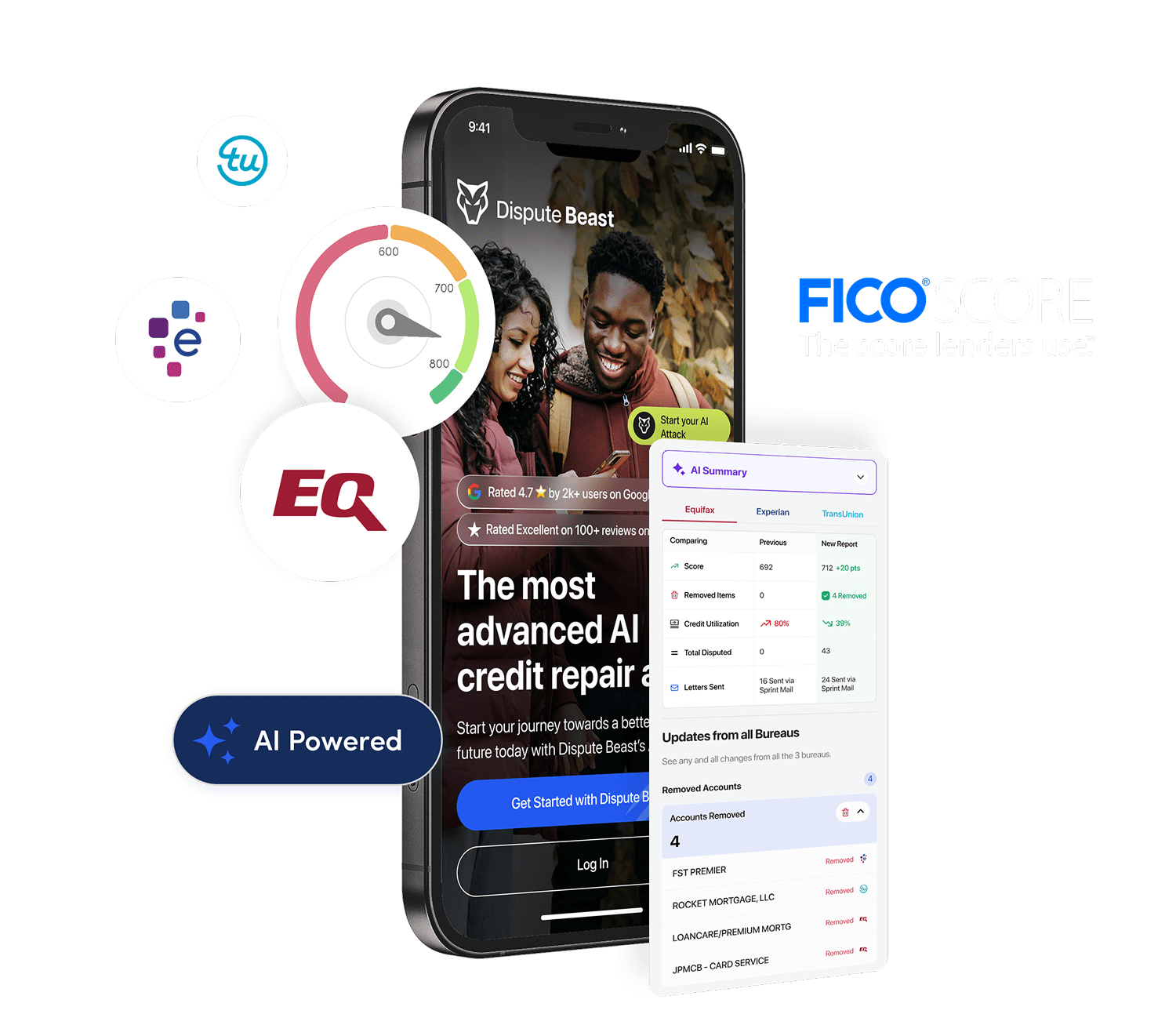Want to get your FICO score? This article shows you how to find. We’ll cover options from credit card companies, banks, and online services to help you stay informed about your credit health for free.
Key Takeaways
- FICO scores are accessible through credit card issuers and financial institutions, allowing consumers to monitor their credit health regularly without cost.
- Utilizing credit monitoring tools can enhance financial awareness by providing alerts on credit changes and guidance for score improvement, making them essential for effective credit management.
- Understanding FICO scores, their impact on loan options, and the differences between scoring models is crucial for making informed financial decisions and improving creditworthiness.
Where to Find Free FICO Scores

There are many tools and services available today that allow individuals to access their FICO scores without incurring any costs. Whether it’s through credit card issuers, financial institutions, or online services, these options help you stay informed about your credit health without affecting your credit score altogether.
Credit Card Issuers
Many credit card issuers provide free access to their customers’ credit scores, making it a convenient way to stay on top of your financial standing. For instance, Discover cardmembers can access their FICO scores for free, which are updated monthly, helping them keep track of their credit health. Similarly, American Express offers its cardholders the FICO Score 8, derived from the Experian credit report, providing a reliable snapshot of their creditworthiness.
Bank of America and Citibank are also notable examples of credit card issuers that offer free FICO scores to their customers. These scores are typically updated on a monthly basis, allowing cardholders to monitor their credit history and make informed financial decisions. Regular checks on FICO scores help customers understand their financial health and monitor changes affecting their creditworthiness.
Having access to free credit scores through credit card issuers not only keeps you informed but also helps you manage your finances more effectively. Regular updates ensure that you are always aware of your current credit status, enabling you to address any issues promptly and maintain a healthy credit profile.
Financial Institutions
Many banks and credit unions provide customers with free access to their credit scores as part of their account benefits. For example, Bank of America offers eligible cardholders free access to their FICO® Score, helping them stay informed about their financial health. Wells Fargo goes a step further by pairing free FICO score access with credit monitoring alerts, ensuring that users are promptly informed of any changes to their credit profile.
Credit unions are another excellent source for free access to FICO scores. DCU Credit Union, for instance, offers its members free monthly FICO score access, helping them keep track of their credit standing and make better financial decisions. Some credit unions even provide additional benefits related to free FICO scores, making them a valuable resource for those looking to monitor their credit health.
By taking advantage of these services offered by financial institutions, you can stay on top of your credit score and ensure that you are always in a strong position to make informed financial decisions. Regularly checking your FICO score through your bank or credit union can help you identify potential issues early and take corrective action to maintain a healthy credit profile.
Online Services
Online services like myFICO.com offer users free access to their FICO scores under certain conditions. For example, users can get your free access to their FICO Score 8, which is based on their Equifax credit data, helping them stay informed about their credit health and make better financial decisions. Regularly checking your FICO score online is a convenient way to monitor your financial standing without any additional costs.
These online platforms provide a user-friendly interface that makes it easy to access your credit score from any mobile device or computer. Using these services helps you monitor your credit profile closely and stay informed about your current credit status, allowing for timely and informed financial decisions.
Credit Monitoring Tools for Free FICO Scores
Credit monitoring tools are essential for accessing free FICO scores and staying informed about your credit status. These tools often come with additional features like alerts for changes in your credit score, suspicious activity, and personalized tips for improvement.
Credit monitoring services enhance your financial health and creditworthiness.
Dispute Beast
Dispute Beast offers access to authentic FICO scores from all three major credit bureaus and provides real-time monitoring of your credit profile. With subscriptions like Pro Credit Watch and Beast Credit Monitoring, users can effectively manage their credit and improve their scores over time.
Dispute Beast equips you with the tools to monitor and improve your credit scores. The platform allows users to access their FICO scores as part of its subscription services, helping them stay informed about their financial health and take necessary steps to enhance their creditworthiness.
Benefits of Knowing Your FICO Score

Regularly checking your FICO score helps evaluate your creditworthiness and determine loan terms before applying for credit. A higher FICO score can qualify you for better loan terms and lower interest rates, ultimately saving you money. To improve your chances, it’s essential to check your fico to get your fico.
Understanding the importance of your FICO score can significantly affect your finances and help you achieve goals like homeownership.
Improved Loan Options
A higher FICO score can enable individuals to qualify for larger loan amounts and better interest rates, making it easier to achieve financial goals such as buying a home or a car. Credit score requirements for various loans include:
- Conventional mortgages typically require a minimum credit score of 620.
- FHA and USDA loans generally require a minimum score of 500 to 580.
- Jumbo loans usually require a minimum credit score of 700.
Scores above 700 are generally deemed favorable for securing competitive mortgage rates, and having a good credit score (670 or higher) can significantly improve your chances of getting approved for various types of loans. An exceptional credit score, defined as higher than 800, can open doors to the best loan terms and interest rates available.
Maintaining a high FICO score grants access to a wider range of loan options with favorable terms, saving money and enhancing financial flexibility.
Personalized Credit Card Offers
Many credit card companies provide offers that align with an individual’s credit profile, allowing consumers to receive tailored financial products that suit their unique credit situations. Aligning offers with a person’s creditworthiness ensures they receive credit cards products that they are likely to qualify for, leading to better financial management and favorable loan terms.
Knowing your FICO score and understanding your credit profile allows you to take advantage of personalized credit card offers that meet your financial needs and aid in effective credit management.
Financial Control
Understanding your FICO score gives you insights into your creditworthiness and financial health, which is vital for making informed financial decisions. A higher FICO score typically results in better loan options, including lower interest rates and more favorable terms, enabling you to take control of your financial future.
With a good understanding of your FICO score, you can receive personalized credit card offers that are tailored to your credit profile, enhancing your financial control.
How to Improve Your FICO Score
Improving your FICO score can lead to significant savings on loans due to lower interest rates. Regularly checking your FICO score helps in identifying areas for improvement in financial management, empowering you to make informed decisions regarding your financial health.
Paying Bills on Time
Paying all bills on time is a key factor in positively impacting your FICO score. Consumers with the highest credit scores consistently pay their bills on time, and on-time payments are a crucial element to improve your credit score. Delinquent payments can significantly lower your credit score, even if they’re only reported as 30 days late, so it’s essential to catch up on past-due accounts to improve your credit score and prevent additional late payments.
Regularly checking your free credit report and score can help you identify any late payments or past-due accounts that need to be addressed. Timely payments help maintain a healthy credit profile and improve your FICO score over time.
Reducing Credit Utilization
Key points about credit utilization and credit scores:
- Keep your credit utilization under 30% to improve your credit scores.
- For excellent credit, aim for a credit utilization below 10%.
- The credit utilization ratio accounts for 30% of your FICO score.
- It is calculated by dividing credit card balances by credit limits.
- Maintaining a low credit utilization ratio positively impacts your creditworthiness and can significantly improve your FICO score.
Closing a credit card can increase your credit utilization ratio since it reduces your available credit limit. Managing credit card balances and keeping utilization low enhances your credit profile and raises your FICO score.
Limiting New Credit Inquiries
Frequent applications for new credit can lead to hard inquiries, which may lower your credit score temporarily. Limiting new inquiries for new credit maintains a healthy credit profile and prevents negative impacts on your FICO score.
Being mindful of when and why you apply for new credit cards can help you manage your credit health more effectively.
Understanding Different Credit Scores

A FICO score is a type of fico credit score used by lenders to evaluate borrowing risk, with around 90% of lending decisions utilizing FICO scores. Understanding the differences between various credit scores and their significance can help you make better financial decisions.
FICO vs. VantageScore
FICO and VantageScore are the two primary credit scoring models used by lenders to assess credit risk, with their calculations being calculated based on similar factors such as payment history, credit utilization, and length of credit history. While both models use these factors, they weigh them differently, resulting in varied scoring outcomes. For instance, VantageScore may place more emphasis on recent credit behavior, while FICO focuses on long-term credit management.
Understanding the distinctions between these scoring models can help you better interpret your credit scores and take appropriate actions to improve them. Knowing that Capital One CreditWise offers free access to VantageScore 3.0, whereas many other platforms provide FICO scores, is crucial for making informed credit decisions.
Credit Report Data
Credit reports are crucial documents that contain detailed information about an individual’s credit history, and the data on these reports can vary significantly between the three credit bureaus—Experian, Equifax, and TransUnion. These differences can lead to variations in credit scores calculated by lenders, making it essential to review your credit reports regularly.
Understanding how credit report data affects FICO scores is vital for consumers seeking better credit options. By staying informed about the information on your credit reports, you can identify discrepancies and take steps to correct them, ultimately enhancing your creditworthiness and improving your FICO score.
Impact of Scoring Models
Different credit scoring models may prioritize certain factors more heavily, affecting the final score. For example, one model might weigh recent credit inquiries more significantly, while another may focus on the length of credit history. These variations can lead to other credit scores for the same individual, influencing loan options and interest rates.
Understanding these differences is crucial for consumers to navigate their credit landscape effectively.
Using Dispute Beast for Credit Repair
Dispute Beast is an AI-driven tool designed to assist users in disputing negative items on their credit report efficiently. By providing tools to effectively dispute inaccuracies, Dispute Beast simplifies the credit repair process, ensuring that users can manage their credit health with ease.
Automated Dispute Letters
Dispute Beast helps users address inaccuracies on their credit reports by generating dispute letters. Users can quickly generate these letters with just a single click, streamlining the process of addressing errors on their credit reports. The platform allows users to create and send customized dispute letters targeting specific inaccuracies with ease.
Subscribing to the required monitoring service allows users to generate unlimited dispute letters, continuously addressing and correcting any credit report issues. This automated system makes it easier for users to maintain a healthy credit profile and improve their FICO scores.
Continuous Monitoring
Continuous monitoring of your credit report is crucial for tracking and eliminating new negative items. Using credit monitoring tools allows you to receive alerts about any changes in your credit report, helping you address potential issues swiftly and improve your overall credit health.
Services like Experian CreditWorks℠ not only provide free FICO scores but also include credit monitoring and identity theft insurance, ensuring comprehensive coverage for your financial health.
Legal Compliance
Dispute Beast ensures that all dispute actions adhere to regulations set by the Fair Credit Reporting Act (FCRA) and the Fair Debt Collection Practices Act (FDCPA). The automated dispute letters generated by Dispute Beast comply with legal standards, maintaining consumer rights and ensuring accurate reporting.
By following Metro 2 standards, Dispute Beast guarantees that all credit data is reported accurately to credit bureaus, making the credit repair process both effective and compliant with industry standard.
Summary
In conclusion, accessing your FICO score for free is easier than ever, thanks to various tools and services from credit card issuers, financial institutions, and online platforms. By understanding your FICO score and utilizing credit monitoring tools, you can improve your financial health, qualify for better loan terms, and receive personalized credit card offers. Additionally, using Dispute Beast for credit repair can help you maintain a healthy credit profile and correct any inaccuracies on your credit reports. Stay informed, take control of your credit, and unlock the financial opportunities you deserve.
Frequently Asked Questions
How can I get my FICO score for free?
You can obtain your FICO score for free by checking with your credit card issuer or financial institution, as many offer this service to their customers. Additionally, you may explore online platforms such as myFICO.com for further options.
What is the difference between FICO and VantageScore?
FICO and VantageScore are distinct credit scoring models that evaluate similar factors but prioritize them differently, leading to variations in credit scores. This difference can significantly impact lending decisions and overall credit assessment.
How does Dispute Beast help with credit repair?
Dispute Beast aids in credit repair by generating automated dispute letters to correct inaccuracies on credit reports and offering continuous monitoring to identify and address new negative items. This streamlined approach enhances the effectiveness of credit repair efforts.
Why is it important to know my FICO score?
It is important to know your FICO score because it assesses your creditworthiness, enabling you to qualify for favorable loan terms and tailored credit card offers. Understanding your score can significantly impact your financial decisions and opportunities.
What are some strategies to improve my FICO score?
Improving your FICO score can be achieved by consistently paying bills on time, reducing credit utilization, and limiting the number of new credit inquiries. Implementing these strategies will positively impact your creditworthiness.



